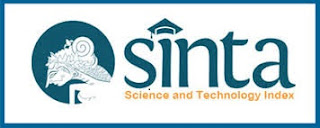Social Character Education in the Perspective of the Qur'an and Hadith
DOI:
https://doi.org/10.32678/alqalam.v40i2.9812Keywords:
Al-Quran and Hadith, Social Character, EducationAbstract
This research discusses the meaning of social education and its value in forming social character from the perspective of the Qur’an and Hadith. The assessment was done through a literature review, taking references from commentaries, books, journals, and related articles, accessed online via the Internet network. There are many values of social character education taught in the Qur'an and Hadith, such as brotherhood, mutual help, caring, forgiveness, tolerance, mutual giving, not being individualistic, and giving each other space to others. Many more social and community education values are presented in the Al-Qur'an and Hadith, which can be used to form social character. Due to limitations, several examples of social and social education values are taken, as informed in the Al-Qur'an and Hadith.
Downloads
References
Al-Abrasy, M. A. (tt)., al-Tarbiyah al-Islamiyah, Cet. 3, Beirut: Dar al-Fikri al-Arabial-Hasyimi, A. H. (2001). Mendidik Ala Rasulullah, Jakarta: Pustaka Azam
Angga, Abidin, Y., & Iskandar, S. (2022). The Implementation of Character Education with 21st Century Skills-Based Learning Models. Jurnal Basicedu, 6(1), 1046–1054. https://doi.org/10.31004/basicedu.v6i1.2084
Casika, A., Lidia, A., & Asbari, M. (2023). Character Education and Moral Decadence Among Millennials. Literaksi: Jurnal Manajemen Pendidikan, 1(1), 13–19. http://ejournal.kopertais4.or.id/madura/index.php/alallam/article/view/5648
Esteban. (1990). Education in values: what, why, and for Whom. Manila: Sinag_Tala Publisher, Inc.
Fattah, A. (2016). The Concept of Character Education in the Perspective of Hadith. Tarbawi, 1(2), 12–26. digilib.uinsby.ac.id
Imam Jalaluddin Al Mahalli, I. J., & As-Suyuthi, J. T. (2011). Tafsir Jalalain Jilid 2. Bandung: Sinar Baru Algensindo.
Indonesia, K. P. A. (2021). 2020 Performance Report of the Indonesian Child Protection Commission "Child Protection in the Era of the COVID-19 Pandemic.
Ismail Haqqi Al-Buruswi, 1996. Terjemah Tafsir Ruhul Bayan Juz IV. Bandung:Diponegoro.
Ismail Haqqi Al-Buruswi, 1996. Terjemah Tafsir Ruhul Bayan Juz IV. Bandung:Diponegoro.
Izzati, N., & Dewi, D. A. (2021). Pancasila cries over the moral decline of the nation's young generation. EduPsyCouns Journal, 3(1), 185–197.
Langgulung, H. (1995). Human and Education, Jakarta: Al-Husna Zahra
Muhaimin., & Mujid. A. (1993). Islamic Education Thought, Bandung: Trigenda Karya
Muin, A. (2020). Increasing Cases of Violence Against Women and Children in South Sulawesi https://sulsel.idntimes.com/news/sulsel/ashrawi-muin/kasus-kekerasan-terhadap-perempuan-dan-anak-di-sulsel-meningkat/1
Purwanto, M. N. (2000). Educational Science, Teoritis dan Praktis, Bandung: Remaja Rosdakarya.
Rohmawati, O., & Watini, S. (2022). The Utilization of School TV as a Learning and Character Education Media for Early Childhood. Jurnal Pelita PAUD, 6(2), 196–207. https://doi.org/10.33222/pelitapaud.v6i2.1708
Salsabilah, A. S., Dewi, D. A., & Furnamasari, Y. F. (2021). The Role of Teachers in Realizing Character Education. Tambusai Education Journal, 5(3), 7164–7169. https://jptam.org/index.php/jptam/article/view/2106/1857
Sugiyono. (2018). Metode Penelitian Kuantitatif, Kualitatif, dan R&D (28th ed.). Alfabeta.
Sulaiman. (2019). Character Education from the Perspective of the Qur'an. Ilmu Al-Qur’an Dan Hadist, 2(1), 39–48.
Tsoraya, N. D., Khasanah, I. A., Asbari, M., & Purwanto, A. (2023). The Importance of Character Education on Students' Morality in the Digital Era Community Environment. Literaksi: Journal of Educational Managemen, 1(01), 7–12.
Downloads
Published
Issue
Section
License
Copyright (c) 2024 Nurhidaya M, Abd. Basir, Mahyuddin Barni, Ahmad Khaeruddin

This work is licensed under a Creative Commons Attribution-NonCommercial 4.0 International License.













